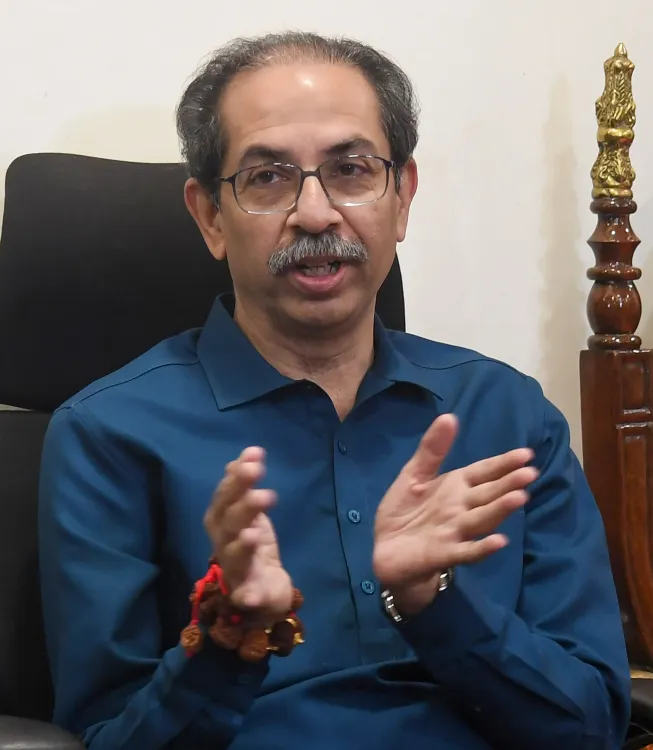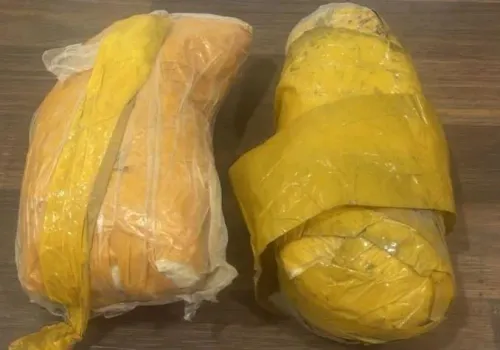Should a culpable homicide case be filed over children’s deaths from adulterated cough syrup?

Synopsis
Key Takeaways
- 17 children died due to contaminated cough syrup.
- Adulteration involved toxic chemicals.
- Government oversight was insufficient.
- Public trust in medicine has been severely impacted.
- Two cough syrups have been banned after the incident.
Mumbai, Oct 6 (NationPress) Shiv Sena (UBT) expressed profound shock and outrage on Monday over the tragic deaths of 17 children who consumed adulterated cough syrup in Madhya Pradesh and Rajasthan, calling for a culpable homicide case against those in power who tout their record of 'good governance.'
According to the party, these tragic incidents occurred because hazardous, cheap chemicals were mixed into the 'cough syrup' to cut manufacturing costs, all while government oversight was lacking.
A pointed editorial in the party's publication, Saamana, criticized the prioritization of cost over the quality of medicine, stating that harmful chemicals typically used in car coolants and brakes were added in substantial amounts to this medical product.
The editorial accused manufacturers of prioritizing profit over safety, highlighting that regulatory bodies neglected to identify the adulteration due to greed. A saying goes, 'the cure is worse than the disease,' which fits the situation in Madhya Pradesh and Rajasthan, where 17 children tragically died after receiving free medicine for something as common as a cough from government hospitals.
“Who would distribute poison masquerading as medicine? It’s inconceivable, yet it’s the unfortunate reality. In Madhya Pradesh and Rajasthan, toxic substances are being handed out as cough medicine, resulting in the death of children who thought they were receiving treatment. Recently, 14 children in Madhya Pradesh fell victim to this contaminated syrup, while three unborn children tragically died in Rajasthan after consuming it. The revelations from these states have left the nation in disbelief. It is appalling that parents sought relief for their children’s coughs with what they believed to be safe medicine, only to find their children suffering kidney failure and ultimately dying,” the editorial lamented.
The piece expressed concern about the erosion of public trust in medicines, questioning whether those responsible in government, administration, or the companies involved have felt any remorse. “Greed is the sole reason behind these heart-wrenching deaths. The anguish faced by the families who lost their children is beyond comprehension,” it added.
“Two cough syrups, Coldrif and Nexa DS, have now been banned, and authorities have mandated that cough medicines should not be administered to children under two years old. Yet, who will accept accountability for the 17 lives that have already been lost?” Saamana questioned.
The editorial noted that Coldrif, the cough syrup responsible for the majority of the fatalities, is produced in Tamil Nadu and distributed across many states. Alarmingly, this syrup was found to be heavily contaminated with diethylene glycol, a hazardous chemical used in the automotive sector. While the permissible limit for this chemical in the syrup was supposed to be only 0.1 percent, testing revealed levels as high as 46 to 48 percent.
Criticizing the government for its slow reaction, the editorial stated, “The administration has only just begun sending previously used medicines for testing and recalling contaminated stocks from government hospitals. However, what use is this belated action when it should have been taken long ago?”









